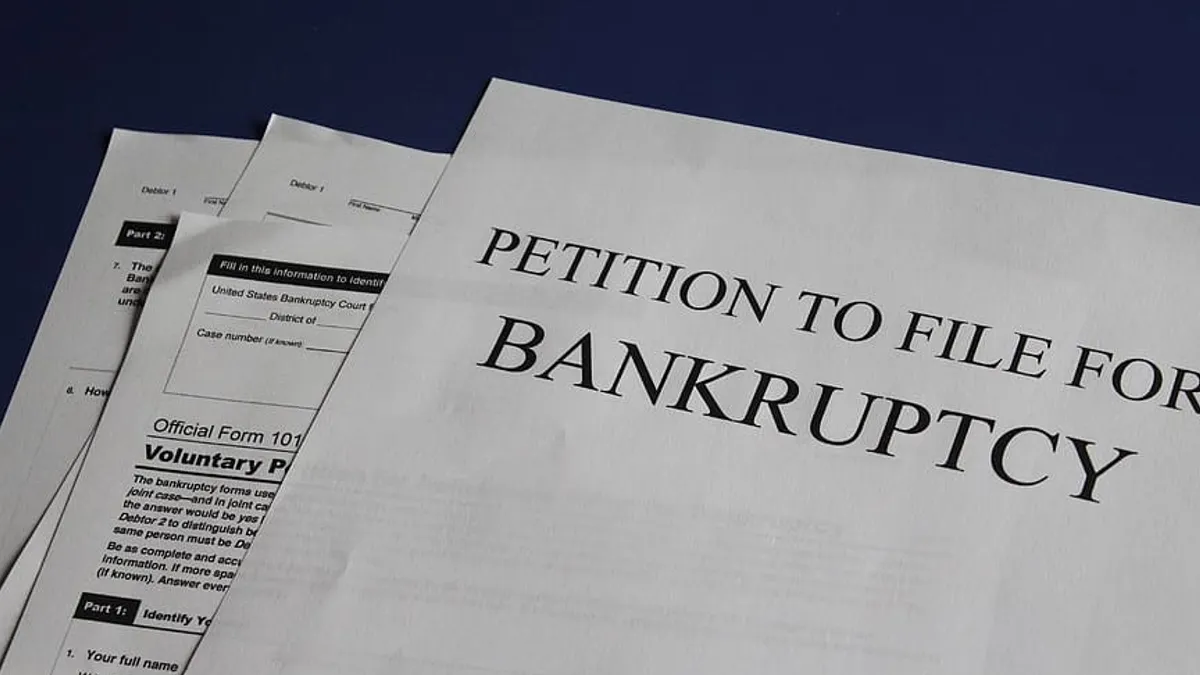Coronavirus-induced Chapter 11 bankruptcies are putting the spotlight on a way to help failed companies get a fresh start. As the pandemic took hold in Q2, Chapter 11 filings surged by double digits, reports show.
"Fresh-start accounting," as bankruptcy specialists call it, is a way of increasing chances of success for a company coming out of Chapter 11 by reorganizing it into a new firm, or a new subsidiary of an existing firm, with a new set of books.
The approach is employed more frequently as Chapter 11 filings increase, Jason Pizza, Grant Thornton Transaction Accounting Services National Lead Partner, said.
The reason: It gives companies emerging from bankruptcy a one-time chance to overhaul their accounting policies completely, or even adopt new ones.
Where to start
Pizza outlined a series of steps to qualify for fresh-start accounting. First is to determine if the balance sheet is insolvent prior to emergence from Chapter 11.
Second is a court-confirmed change of control, which is met if existing investors, immediately before confirmation of the plan, receive less than 50% of the voting shares of the new entity.
Third is a revaluation of the emerging entity's assets and liabilities. Upon emergence, the financial statements are broken up into predecessor and successor entities and presented in two ways: as they were for the predecessor entity and as they will be for the successor.
With fresh-start accounting, a company in Chapter 11 tries to show investors, lenders and other stakeholders it has a good chance of being in business for the long term, Pizza said.
For finance chiefs and others in the C-suite going through the process, the change likely requires delegation. Preparing the financial statements and the new capital structure are time-consuming. So, executives can expect to hand off work to others in the organization to free up time, according to Pizza.
Valuation issues
Although fresh-start accounting is designed to give investors more confidence in the long-term prospects for the emerging company, investors are likely to evaluate the financial statements coming out of the process themselves, Pizza said. The pandemic has shown long-term outlooks can be quickly and unexpectedly squashed.
When the value of assets in a Chapter 11 reorganization are regularly in flux (like oil and gas), judges sometimes permit a range of values instead of set amounts in a fresh-start proceeding, according to a bankruptcy manual from KPMG.
"This may help give the stakeholders perspective on the fluidity," KPMG said.
While not legally required, a business applying fresh-start accounting should also make these disclosures, KPMG said:
- How the company will conduct its business when it emerges from Chapter 11.
- How its capital will be structured.
- How many and what kind of equity securities were distributed to creditors.
- Which businesses were ceased, or subsidiaries were sold.
Faster process
The increase in Chapter 11 filings isn't happening in all of the bankruptcy courts, Laurel Isicoff, president of the National Conference of Bankruptcy Judges, said. She noted the surge is most prevalent in venues that have traditionally been the sites of the largest Chapter 11s, such as the Delaware District and the Bankruptcy Court for the Southern District of New York.
Isicoff, chief judge for the U.S. Bankruptcy Court of the Southern District of Florida, said the need for judges and others involved in bankruptcy litigation to work remotely during the pandemic can speed up things.
She pointed out the lead attorney in one case before her is based in Texas. With calls, Judge Isicoff said, the lawyer can spend more time negotiating and doing other work and less time flying.
Another way the COVID-19 Chapter 11 court backlogs could speed things up is if some parties decide they don't want to prolong the process and negotiate prepackaged bankruptcies, Robert Reilly, author of "The Handbook of Advanced Business Valuation," said.
The same thing happened in the wake of delays from the 2008 financial crisis, said Reilly, who has been doing bankruptcy valuations for 45 years.
Reilly, also a managing director at Chicago-based Willamette Management Associates, said court delays could be fatal for entities going through Chapter 11 potentially on the way to fresh-start accounting as debts and expenses pile up.
"It's like COVID-19. You're better off if you can see the doctor immediately than if you have to wait a couple of months," he said.
Valuation red flags
Valuation is trickier in entities emerging from Chapter 11 than for a business being bought in a merger or acquisition, Reilly said.
In M&A, the value of an entity is determined in the negotiations between a willing buyer and a willing seller, he added. Reorganization value in a fresh-start accounting procedure is based on a made-up projection of future results that doesn't necessarily reflect fair market value.
"It's hard to do due diligence on the projections," Reilly said.
M&A for the acquired company often looks very similar before and after the deal, as opposed to a fresh-start accounting entity, which can be significantly different.
Finance chiefs at companies considering buying an entity emerging from fresh-start accounting must watch out for a red flag, Reilly said.
"If you are investing in one of these reorganized companies and you start seeing identifiable intangible assets or goodwill on the balance sheet, then you should be concerned," he said. "Those are the accounts you should really focus on. There is no market basis for the intangible assets and there is no market basis for the goodwill."



















